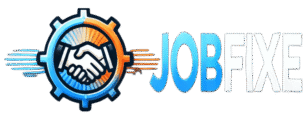
Table of Contents
Introduction
The anticipation of waiting to hear back about a BNSF railway position can be overwhelming. Whether aspiring to become a conductor, or engineer, or join their corporate team, knowing how to track your application status effectively can make the difference between landing your dream role and missing out on opportunities. As a career coach with over a decade of experience in the railroad industry, I’ve guided countless professionals through the BNSF job search process. I’m here to share the most effective strategies for monitoring your application status.
In this comprehensive guide, you’ll discover four proven methods to track your BNSF job application, along with expert insights on maximizing your chances of success. We’ll cover everything from utilizing BNSF’s career portal to maintaining professional communication with recruiters, ensuring you stay informed throughout the hiring process.
Why Tracking Your BNSF Job Search Matters
In today’s competitive job market, particularly within the railroad industry, simply applying isn’t enough. According to the U.S. Bureau of Labor Statistics, transportation sector employment is projected to grow by 4% through 2029, making railway positions increasingly competitive. Here’s why tracking your application is crucial:
- Demonstrates proactive interest in the position
- Helps you time follow-up communications effectively
- Enables better planning of your overall job search strategy
- Increases your chances of catching and addressing any application issues
- Allows for better preparation when moving through different stages of the hiring process
The 4 Essential Ways to Track Your BNSF Application
1. BNSF Careers Portal Navigation
The BNSF Careers Portal (careers.bnsf.com) serves as your primary tracking tool. Here’s how to maximize its effectiveness:
Setting Up Your Account:
- Create a detailed candidate profile
- Enable email notifications for application updates
- Save your login credentials in a secure location
- Regularly check for status changes (recommended: twice weekly)
Portal Features to Utilize:
- Application status dashboard
- Message center for recruiter communications
- Saved job searches
- Document upload tracking
2. Strategic Email Communication
Maintaining professional email correspondence is vital for tracking your application:
Best Practices:
- Create a dedicated folder for BNSF-related emails
- Set up email filters for messages from bnsf.com domains
- Keep copies of all correspondence
- Maintain a professional email signature
Follow-up Timeline:
- Initial application confirmation: 1-2 business days
- Application status inquiry: 7-10 business days after submission
- Interview follow-up: 3-5 business days after interview
3. Professional Networking Tracking
Leverage professional networks to monitor your application progress:
LinkedIn Strategies:
- Connect with BNSF recruiters
- Follow B NSF’s company page
- Join railroad industry groups
- Track hiring manager activities
Industry Network Monitoring:
- Railroad industry forums
- Professional association updates
- Alumni networks
- Industry-specific job boards
4. Personal Application Tracking System
Develop a systematic approach to tracking your BNSF application:
Essential Tracking Elements:
- Position details and job ID
- Application submission date
- Contact information for recruiters
- Communication history
- Interview dates and feedback
- Follow-up schedule
Recommended Tools:
- Spreadsheet tracking template
- Digital calendar reminders
- Task management apps
- Application status notes
Preparation & Requirements for Successful Tracking
Document Organization
Maintain an organized system for all application-related documents:
Essential Files:
- Updated resume (tailored for BNSF positions)
- Cover letter versions
- Professional certifications
- References list
- Communication templates
Digital Profile Management
Optimize your online presence while tracking applications:
LinkedIn Profile:
- Industry-relevant keywords
- Railroad experience highlights
- Professional accomplishments
- Network connections in the railroad sector
Technical Requirements
Ensure you have the necessary tools for effective tracking:
Required Tools:
- Reliable internet connection
- Updated web browser
- Professional email account
- Mobile device for portal access
- Document management system
Pro Tips for BNSF Application Tracking Success
Timing Your Follow-ups
Understanding when to check in is crucial:
Optimal Follow-up Windows:
- Initial application: 7-10 business days
- After phone screening: 3-5 business days
- Post-interview: 3-5 business days
- After the final interview: 5-7 business days
Communication Templates
Prepare professional templates for different scenarios:
Template Types:
- Application status inquiry
- Interview follow-up
- Document submission confirmation
- Thank you messages
Red Flags to Watch For
Monitor these potential issues during your tracking:
Warning Signs:
- Extended periods without updates
- Inconsistent status information
- Undelivered emails
- Portal technical issues
Industry-Specific Considerations
Railroad Sector Nuances
Understanding industry-specific factors affecting application tracking:
Key Considerations:
- Seasonal hiring patterns
- Position-specific timelines
- Union vs. non-union roles
- Security clearance requirements
Position-Specific Tracking
Different positions require different tracking approaches:
Role-Based Considerations:
- Operations positions (conductors, engineers)
- Corporate roles
- Technical positions
- Management tracks
Frequently Asked Questions
Common Tracking Concerns
Q: How often should I check my application status?
A: Check the BNSF careers portal 2-3 times per week and after any communication from the company.
Q: What should I do if my application status hasn’t changed for several weeks?
A: Send a professional follow-up email after 10-14 business days of no updates.
Q: How can I track multiple BNSF applications simultaneously?
A: Use a spreadsheet or tracking system to monitor different positions separately.
Success Enhancement Strategies
Networking During the Tracking Period
Maintain professional connections while waiting:
Networking Opportunities:
- Railroad industry events
- Professional associations
- LinkedIn groups
- Alumni networks
Skill Development
Use the tracking period to enhance your qualifications:
Focus Areas:
- Railroad safety certifications
- Technical skills relevant to desired positions
- Industry-specific software proficiency
- Leadership development
Additional Resources
Reliable Industry Sources
Stay informed through these authoritative sources:
- BNSF Careers Website
- Association of American Railroads
- U.S. Railroad Retirement Board
- Federal Railroad Administration
Professional Development
Enhance your candidacy while tracking:
- Railroad Operations Training Programs
- Safety Certification Courses
- Industry-Specific Webinars
- Professional Association Memberships
Conclusion
Effective tracking of your BNSF job search application is a crucial component of your career advancement strategy. By implementing these four tracking methods – utilizing the BNSF careers portal, maintaining professional email communication, leveraging networking channels, and developing a personal tracking system – you’ll position yourself for success in securing your desired position with BNSF Railway.
Remember that persistence and professionalism are key throughout the tracking process. Stay organized, maintain regular but respectful communication, and continue developing your skills while awaiting updates on your application status.
Ready to take control of your BNSF job search? Begin implementing these tracking strategies today, and don’t forget to bookmark this guide for future reference. For additional support and resources, consider joining professional railroad associations and networking groups in your area.
Note: This guide is regularly updated to reflect current BNSF application processes and industry standards. Last updated: February 2025.


